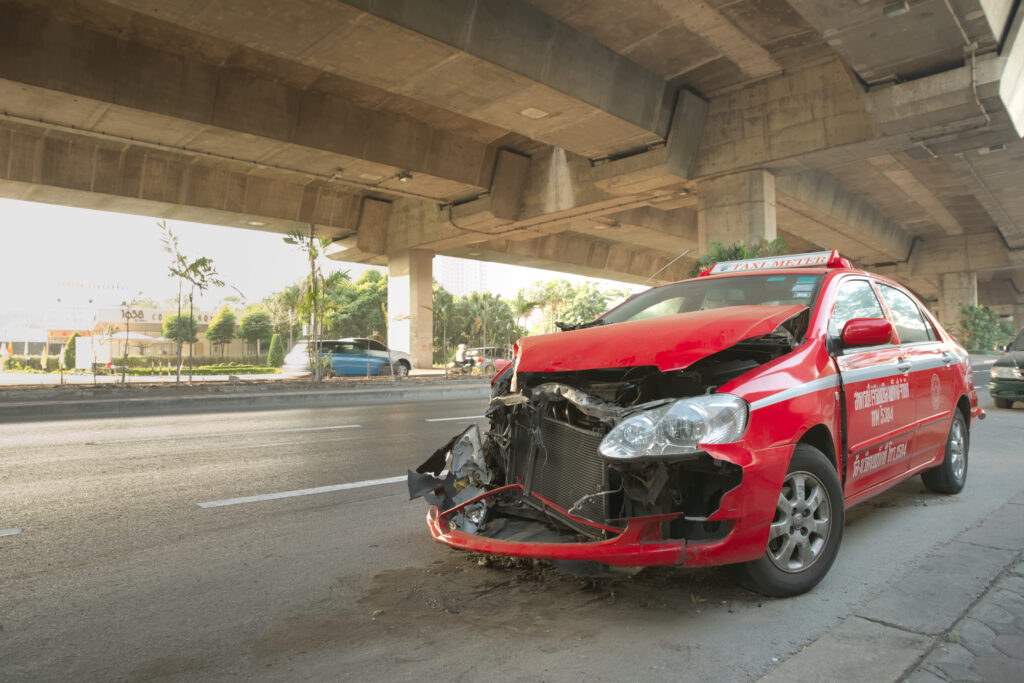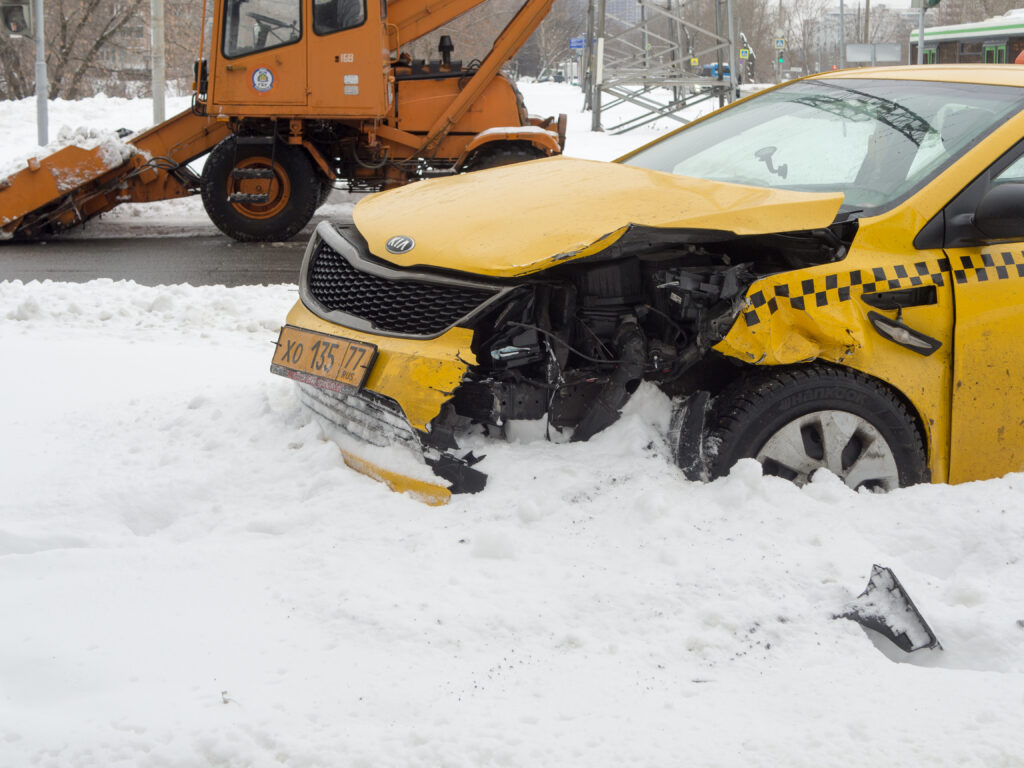Rideshare services like Lyft have become an integral part of transportation in Spring Hill, offering convenience and accessibility. However, Lyft accidents can happen suddenly and unexpectedly.
Whether it's a distracted driver, adverse weather, or unforeseen road obstacles, the risk of accidents keeps growing. The fast-paced nature of these services outs ever more drivers on the road, increasing the likelihood of accidents.
After a rideshare accident, hire a Spring Hill Lyft accident lawyer who understands the intricacies of these cases and can provide skilled guidance and support to protect your rights and interests during the claims process. Call our office at (813) 565-3318 for your free consultation.
Why Choose Hancock Injury Attorneys for Your Lyft Accident Claim?
Accidents involving Lyft rides can leave victims with daunting injuries and complex questions about their rights.

If you or a loved one was injured in a Lyft accident in Spring Hill, you don't have to face the legal challenges alone. The dedicated legal team at Hancock Injury Attorneys has experience handling Lyft accident cases. We are here to provide you with compassionate support and unwavering commitment to your case.
With years of experience, we have a deep understanding of the unique issues that can arise in Lyft accident claims, from determining liability to maximizing compensation for your injuries and losses. We are ready to stand by your side, protecting your rights and advocating for your best interests.
Your journey to recovery and justice begins with a call to our Spring Hill Lyft accident lawyers. Let us help you navigate the legal process, so you can focus on healing and moving forward. Contact us today for a free consultation and take the first step toward securing the compensation you deserve.
What Does a Lyft Accident Claim Involve?
A Lyft accident claim in Spring Hill, Florida, involves several key steps and considerations.
While the specific details may vary depending on the circumstances of the accident, here is an overview of what's typically involved in pursuing a Lyft accident claim:
- Seek Medical Attention: Your health should be the top priority. If you or anyone else involved in the accident is injured, seek immediate medical attention. Prompt medical care can also help establish a link between the accident and your injuries.
- Document the Accident: Collect evidence from the scene if it's safe to do so. Take photos of the accident scene, vehicle damage, license plates, and any visible injuries. Gather witness contact information.
- Report the Accident: Notify the police and file an accident report. This official documentation can be essential in establishing the facts of the accident.
- Contact a Lawyer: Talk to a lawyer before contacting Lyft or your insurance company.
- Notify Lyft: Inform Lyft about the accident through their app. They may guide you on the next steps and provide information about the insurance coverage available during the different periods of the rideshare ride.
Filing a Lyft Accident Claim in Spring Hill
An experienced Lyft accident attorney in Spring Hill, Florida, can help ensure that your rights are protected. We help secure fair compensation for your injuries and damages.
Here are a few ways we can help you:
- Providing Legal Guidance: Your lawyer can provide valuable guidance from the beginning and throughout the claims process.
- Insurance Evaluation: Your attorney will help you evaluate the available insurance coverage. This includes Lyft's commercial insurance, the Lyft driver's personal insurance, and potentially your own insurance policy.
- Determining Liability: Your attorney will investigate the accident to determine liability. This may involve reviewing the police report, witness statements, and other evidence to establish who was at fault.
- Negotiating with Insurance Companies: Your attorney will handle communications and negotiations with the involved insurance companies, including Lyft's insurance provider. They will work to secure fair compensation for your injuries and damages.
- Maximizing Compensation: Your attorney will assess the full extent of your damages, including medical expenses, lost wages, pain and suffering, and property damage, to ensure you receive the maximum compensation available.
- Legal Proceedings: If negotiations do not lead to a satisfactory settlement, your attorney may file a lawsuit and represent you in court. They will correctly handle all legal documents and filings.
- Settlement or Trial: Your case may resolve through a settlement with the insurance companies, or it may proceed to trial, where a judge or jury will determine if liability and compensation are in dispute.
- Recovery and Closure: Once you settle or obtain a court judgment, you can begin the process of recovery and closure, knowing that you received the compensation you deserve.
Who May You Hold at Fault in a Lyft Accident?

One or more parties may bear liability for a Lyft accident.
Here are the key parties you may hold at fault in a Lyft accident:
- Lyft Driver: You can hold the Lyft driver at fault if their actions or negligence led to the accident. This can include factors like distracted driving, speeding, running a red light, or other traffic violations.
- Other Drivers: You can hold another driver involved in the accident, not associated with Lyft, at fault if they acted negligently or violated traffic laws, leading to the collision.
- Both Lyft Driver and Another Driver: In some cases, both the Lyft driver and another driver share fault for the accident. This is called comparative negligence, where the court assesses each party's degree of fault and apportions liability accordingly.
- Road Conditions: In cases where poor road conditions, inadequate signage, or road maintenance issues played a significant role in the accident, you can hold the entity responsible for road maintenance or design at fault.
- Mechanical Failures: If the accident resulted from a mechanical failure of the Lyft driver's vehicle, you can hold the vehicle's owner or maintenance provider at fault for negligent maintenance.
- Lyft as a Company: In rare instances, you can hold Lyft as a company partially responsible, such as if a technical issue with the Lyft app distracted the driver or Lyft's instructions contributed to the accident.
The determination of fault in a Lyft accident involves a careful investigation of the accident scene, witness statements, police reports, and sometimes expert analysis. Insurance companies, legal professionals, and, if necessary, the court system play crucial roles in assessing and allocating fault in these cases.
What Insurance Do Rideshare Drivers Have?
Rideshare drivers typically have a combination of insurance coverage that depends on their specific status and activities at the time of an accident. The coverage varies in terms of monetary limits and availability based on the specific period of rideshare driving.
Driver Offline or Personal Use
During this period, when the rideshare driver is not actively using the rideshare app for work, their personal auto insurance policy is primarily in effect. Personal auto insurance typically has coverage limits that vary based on the policy and may include coverages like liability, comprehensive, and collision.
Rideshare drivers should check their personal insurance policies for any rideshare-related endorsements or exclusions.
Driver Available but Without a Passenger
While the driver is logged into the rideshare app but has not yet accepted a ride request, Lyft provides contingent liability coverage.
Lyft's contingent liability coverage generally includes:
- $50,000 per person for bodily injury
- $100,000 per accident for bodily injury
- $25,000 per accident for property damage
- The driver's personal insurance may still apply during this period, but Lyft's contingent coverage serves as secondary insurance.
Driver En Route to Pick Up a Passenger and With a Passenger
Once the driver has accepted a ride request and is en route to pick up the passenger or has a passenger in the vehicle, Lyft's commercial insurance policy is in effect.
Lyft's commercial insurance typically includes:
- $1 million in liability coverage for third-party bodily injury and property damage.
- Uninsured/underinsured motorist coverage with the same limit of $1 million.
- Contingent comprehensive and collision coverage for physical damage to the driver's vehicle with a lower deductible.
Florida also has specific laws and regulations governing rideshare accident claims. These laws address the unique circumstances and insurance considerations associated with rideshare services like Uber and Lyft.
Here are some key Florida laws and regulations related to rideshare accident claims:
- Rideshare Insurance Requirements: Florida law requires rideshare companies like Uber and Lyft to maintain insurance coverage for their drivers. This coverage typically includes at least $1 million in liability insurance for bodily injury and property damage when the driver is actively engaged in providing rideshare services (Period 3).
- Personal Auto Insurance: Rideshare drivers in Florida are also required to maintain personal auto insurance. However, their personal insurance policies might not cover accidents that occur while the driver is working for a rideshare company. This coverage gap is addressed by the rideshare company's insurance during Period 3.
- Notification to Insurance Companies: Florida law mandates that rideshare drivers notify their personal auto insurance carriers that they are using their vehicles for rideshare purposes. This is intended to ensure that insurance companies are aware of the driver's activities and can appropriately adjust policies and premiums.
- Commercial Insurance Policies: In some cases, rideshare drivers in Florida may be required to purchase commercial insurance policies to cover the periods when they are available for rides but have not accepted a passenger (Period 2). Commercial insurance helps fill potential gaps in coverage.
- Uninsured/Underinsured Motorist Coverage: Florida law requires rideshare companies to provide uninsured/underinsured motorist coverage in their insurance policies. This coverage protects rideshare drivers and passengers if they are in accidents with at-fault drivers who lack insurance or have insufficient coverage.
- No-Fault Insurance: Florida operates under a no-fault insurance system. This means that, after an lyft accident, personal injury protection (PIP) benefits under a driver's personal auto insurance policy can cover medical expenses, regardless of fault.
Possible Compensation for Lyft Accident Injuries

If you sustained injuries in a Lyft accident, compensation may cover your losses. The potential compensation can vary based on the severity of injuries, the circumstances of the accident, and applicable insurance coverage.
Here are common types of compensation for Lyft accident injuries:
- Medical Expenses: Compensation may cover all medical costs related to the accident, including hospital bills, surgeries, doctor's visits, prescription medications, rehabilitation, and future medical expenses if the injuries require ongoing treatment.
- Lost Income: Injured individuals may recover compensation for lost income, including wages, bonuses, and other employment benefits if they cannot work due to their injuries.
- Pain and Suffering: Compensation for physical and emotional pain and suffering from the accident and injuries. These subjective damages can vary based on the severity of the injuries.
- Property Damage: Reimbursement for damage to the Lyft passenger's personal property damaged in the accident, such as personal belongings.
- Loss of Consortium: Damages for the loss of companionship, support, and services due to the injuries sustained by the Lyft accident victim. This typically applies to spouses and family members.
- Scarring and Disfigurement: Compensation may pay for permanent scarring or disfigurement, covering the physical and emotional impact of these injuries.
- Future Damages: In cases where injuries result in long-term or permanent disabilities, compensation may pay for future medical expenses, lost earning capacity, and ongoing pain and suffering.
- Rehabilitation and Therapy Costs: Costs associated with physical therapy, occupational therapy, or psychological therapy required to recover from the accident's effects.
- Out-of-Pocket Expenses: This includes expenses such as transportation costs to medical appointments, home modifications, and other accident-related costs.
- Wrongful Death Damages: In cases where an accident results in a fatality, surviving family members may recover compensation related to funeral expenses, loss of financial support, and the emotional impact of the loss.
The availability and amount of compensation can vary depending on the specifics of the accident, the degree of liability, and the insurance coverage in place. An experienced personal injury attorney who handles Lyft accident claims can assess your case, identify potential damages, and guide you through the claims process. Our lawyers ensure you receive the maximum compensation you deserve for your injuries and losses.
Contact Hancock Injury Attorneys
Hancock Injury Attorneys, with our proven track record and experience handling rideshare accident claims, is here to help after a Spring Hill Lyft accident. Act now and contact us to ensure your rights are protected and you receive the maximum compensation for your injuries and damages.
Don't try to navigate the complex legal process alone. We’re here to help. Our compassionate and skilled legal team is dedicated to assisting you throughout this challenging time.
Reach out to Hancock Injury Attorneys today for a free consultation. Your path to justice and fair compensation begins with one call. Contact us at (813) 565-3318 or fill out the contact form on this website.